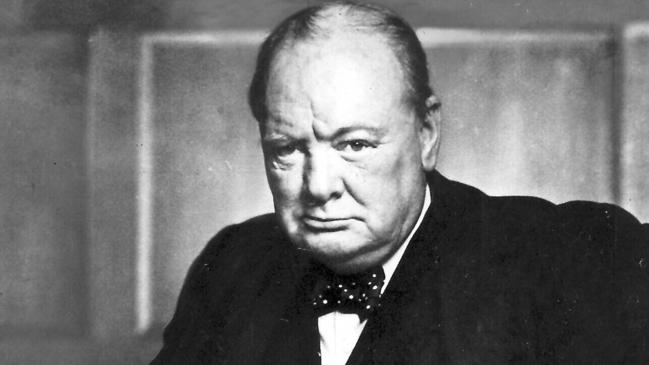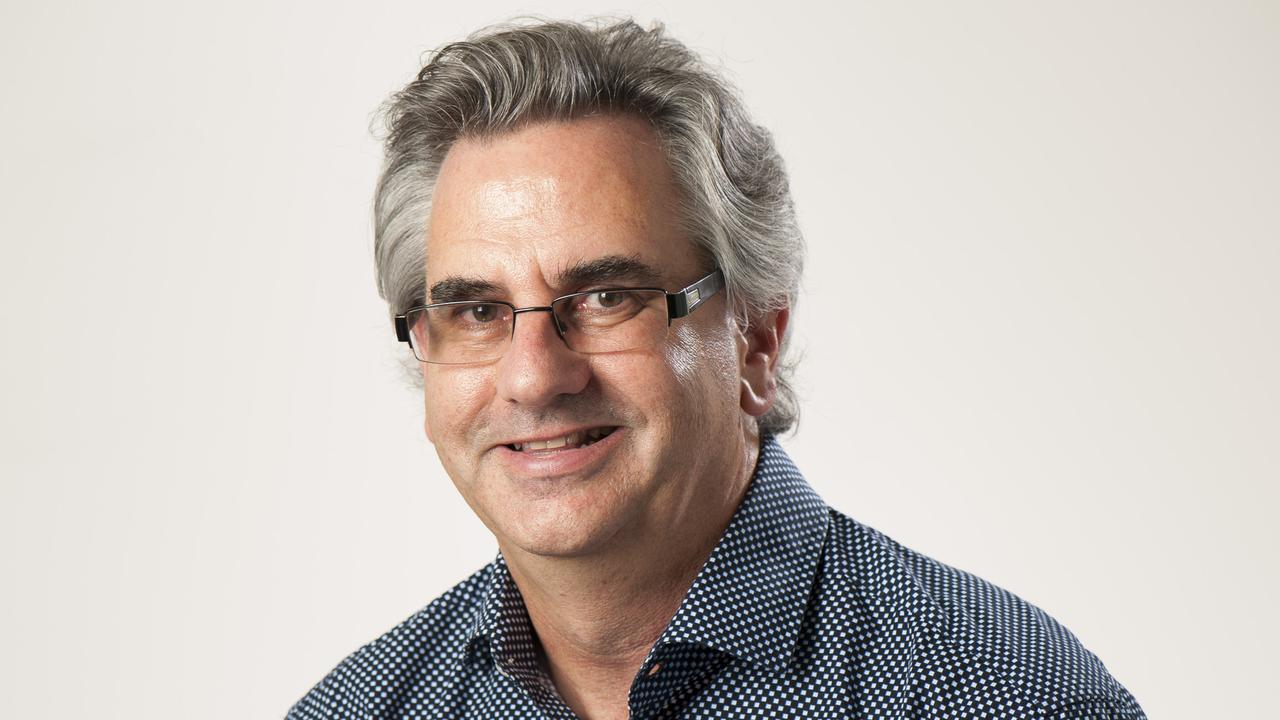Where are the ideas to solve the crisis of the West?
Unlike Churchill and Kennedy, today’s leaders rarely respond to major problems by inspiring citizens to give of themselves.

In the current world climate, where name calling, vituperation and a disregard for fact and reason are becoming the norm, is it any surprise we hardly do better in our public debate, even over the relatively minor issue of a Western canon arts degree at a university?
The irony of the heated controversy over the Ramsay Centre’s proposed bachelor of arts in Western civilisation, which the Australian National University has rejected, is that it comes at a time when the West is facing its greatest crisis since World War II.
We have Donald Trump playing with key political institutions like a kid with a Lego set. He, the political child, thinks the G7 and trade agreements such as NAFTA are things he can smash and rebuild each day as he pleases.
Europe is being torn apart by self-destructive impulses. For so many in the West — not just in Europe but in North America and even our own country — Vladimir Putin exerts a weird attraction. The reality is that he leads a country in economic and political decline where nobody would seriously want to live. But his petty trolling is not shrugged off, in fact it’s become a large factor in the political dynamic of many Western countries.
Why — only a quarter of a century after its apparent triumph with the fall of communism in Europe — is the West so uncertain of its future, its institutions failing and its political leaders fumbling?
It’s more than just the ongoing economic pressure on the less well-off strata of society, as serious as that is. There is also tremendous uncertainty about the environment, about the future of work and the security of jobs, and the expected impact of the rapid and radical changes precipitated by the internet and artificial intelligence.
Of course, in all this there is opportunity as well as threat. We could respond by grasping the opportunities and using our own agency to tackle the real problems we face.
But it’s become embedded in our thinking that change is to be feared. Some of us think we have little ability to turn things for the better. Others among us believe that we know the answers. But this group is split in two by ideology, each convinced it is right, and its opposition so wrong that it must be vanquished before any real change occurs.
This thinking has infected our political culture. Our leaders’ response to major problems is rarely to inspire their citizens to make a difference and give of themselves to improve things.
Do you recall a recent political leader saying, as John F. Kennedy did in his inauguration speech, “Ask not what your country can do for you, but what you can do for your country”? Is there a leader who projects the optimism of a Ronald Reagan? Or one who can appeal to the good, as Abraham Lincoln did at his first inauguration as he saw his country splitting apart and still looked to “the better angels of our nature”?
Leaders now see more value in motivating their people with fear. The clear example is Trump, and of course our own Tony Abbott also used the same tactic. When Malcolm Turnbull ousted him in 2015 there were a few months when the new Prime Minister tried to project optimism with the words: “There has never been a more exciting time to be an Australian.” But the phrase didn’t reverberate and Turnbull soon retreated to the politicians’ norm.
It’s been a long time since we heard anything like Franklin Roosevelt’s “We have nothing to fear but fear itself”.
Nor does any political leader today demand commitment or sacrifice from their people. Can you imagine a Churchill today pledging blood, toil, sweat and tears, and inspiring a nation to endure dreadful uncertainty and hardship for a just cause?
None of this seems possible today in any Western country. It’s impossible to avoid the conclusion that the West, which has dominated the globe politically and culturally for centuries, is in crisis.
And this brings us back to the debate we are having about the Ramsay Centre’s Western civilisation degree — which, in microcosm, reflects all the problems of the West at large.
Two opposing sides, each unwilling to hear out the other. Reflexive opposition to any ideas that are not theirs. The lack of a generosity of spirit and a spirit of tolerance.
It was the West that created the best of what we have today — liberal democracies, freedom of speech, tolerance of difference. It was a far from perfect process to achieve this and the work is far from done but, as Martin Luther King said, and Barack Obama fondly quoted: “The arc of the moral universe is long, but it bends toward justice.”
The best insights to the predicament we find ourselves in today are found in looking at the history and the ideas which brought us here. And that brings us back to the Ramsay Centre’s proposed degree.
Yesterday it posted on its website an indicative curriculum. It is based, as we knew, on the great books of the Western canon.
As you would expect, it stretches back to the classics and comes forward to 20th century.
It looks broad and inclusive, and it looks balanced. From the left perspective — which critics feared would be missing — there are not only Marx and Engels but also Adam Smith, Tom Paine, Mary Wollstonecraft and EP Thompson. It also includes indigenous Australia with the Wonguri-Mandjikay Song Cycle of the Moonbone.
And as well as Alexander Solzhenitsyn’s The Gulag Archipelago, there is Hannah Arendt’s The Origins of Totalitarianism.
A sober, questioning, self-reflective look at Western history and Western ideas is what is needed more than ever. The Ramsay degree looks like an effective way of doing this, particularly as it will taught in small groups, Oxbridge style.
Now the University of Sydney is looking into whether it should take up the Ramsay offer, with funding for the degree and scholarships for students who win places in it. It’s not surprising that vice-chancellor Michael Spence is attracted by it. Oxford is where he spent much of his career.
But he is running into vocal opposition at his own university. The best strategy for those who want to see the degree proceed would be to lay off the war of words against the Ramsay opponents. Let the debate be civilised and don’t paint the vice-chancellor into a corner in which any concession to the degree’s opponents inside the university is painted as a pusillanimous defeat.
The Ramsay Centre could also do another thing. Its board has three Liberals, former prime ministers John Howard and Tony Abbott and MP Julian Leeser, and only one Labor figure, Joe de Bruyn, following the resignation of now West Australian governor Kim Beazley. It needs more political balance. So where is the figure on the left-leaning part of spectrum who will step up?




To join the conversation, please log in. Don't have an account? Register
Join the conversation, you are commenting as Logout